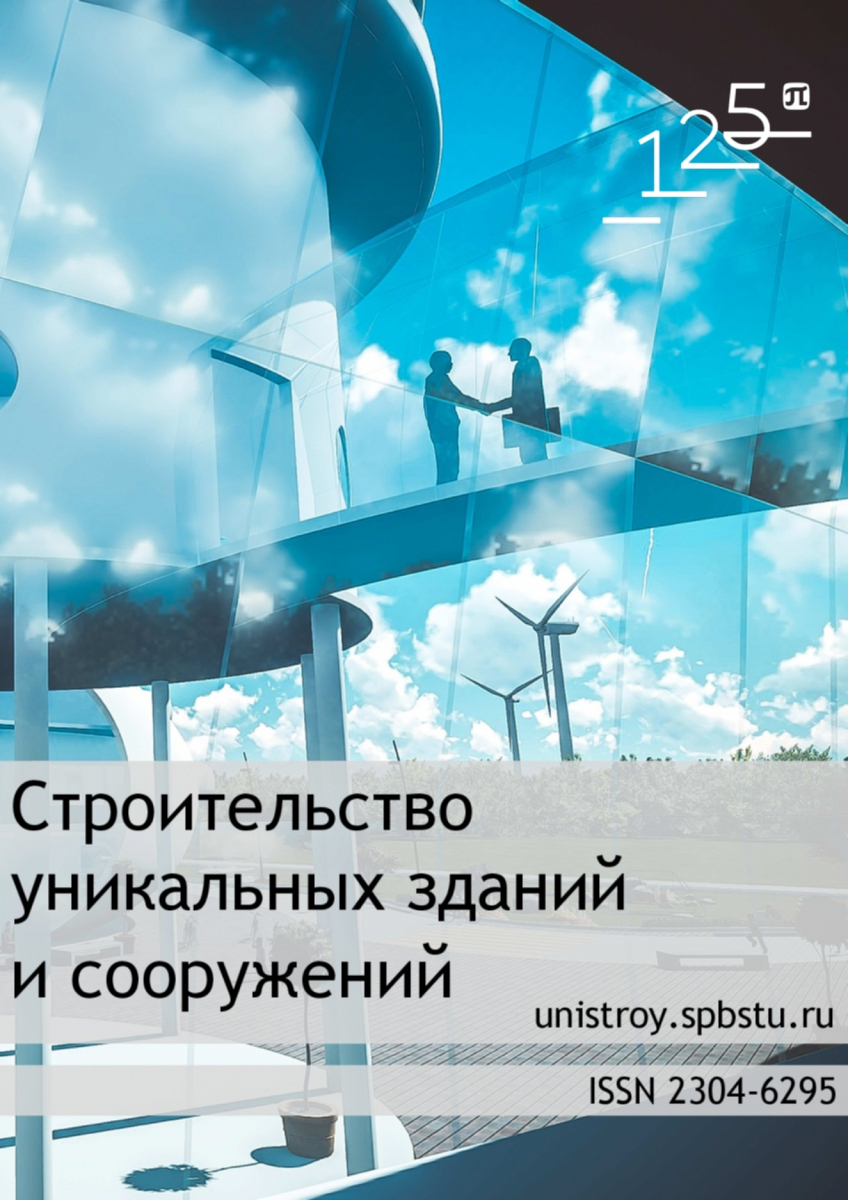Mechanical Characteristics of High-Strength Concrete with Fly Ash and Silica Fume at Elevated Temperatures: The Influence of Heating Duration
The object of research. High-strength concrete containing a multicomponent additive MB10-50C. The mineral part of the additive is represented by industrial by-products - silica fume and fly ash, and the organic part includes a superplasticizer of the C-3 grade. The subject of the study is the characteristics of the mechanical properties (compressive and splitting tensile strength, modulus of elasticity, Poisson's ratio, limiting deformations) of high-strength concrete after a short- and long-term exposure to elevated temperatures up to 400°C. Method. The high-strength concrete was heated in electric furnaces, and the properties were evaluated based on the residual characteristics after the samples cooled down. The characteristics of the properties of concrete are determined according to the national standards of the Russian Federation. Results. Heating of high-strength concrete at temperatures of 90 and 200°C caused an increase in the residual compressive strength by an average of 5 and 10%, respectively. Compressive strength after prolonged heating at 300 and 400°C decreased and accounted for 90 and 70% of the initial values, respectively. Prolonged heating up to 200°C did not lead to significant changes in the splitting tensile strength, but the splitting tensile strength decrease by about 30 and 70% at heating up to 300°C and 400°C, respectively. Values of the initial elastic modulus and Poisson's ratio after heating at 90-400°C only decreased, while the dependence of the characteristics on the value of the heating temperature is linear. Heating of high-strength concrete at 200-400°C increased the ultimate longitudinal strain by 1.25-1.69 times and the ultimate transverse strain by 2-3.87 times.
.png)


